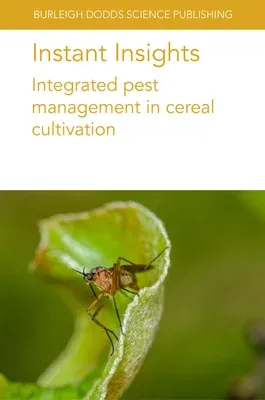F G Horgan
(Author)Instant Insights: Integrated Pest Management in Cereal CultivationPaperback, 20 December 2022

Qty
1
Turbo
Ships in 2 - 3 days
In Stock
Free Delivery
Cash on Delivery
15 Days
Free Returns
Secure Checkout

Part of Series
Burleigh Dodds Science: Instant Insights
Print Length
144 pages
Language
English
Publisher
Burleigh Dodds Science Publishing Ltd
Date Published
20 Dec 2022
ISBN-10
1801466009
ISBN-13
9781801466004
Description
Product Details
Authors:
Book Format:
Paperback
Country of Origin:
US
Date Published:
20 December 2022
Dimensions:
22.86 x
15.24 x
0.84 cm
ISBN-10:
1801466009
ISBN-13:
9781801466004
Language:
English
Location:
Cambridge
Pages:
144
Publisher:
Weight:
213.19 gm